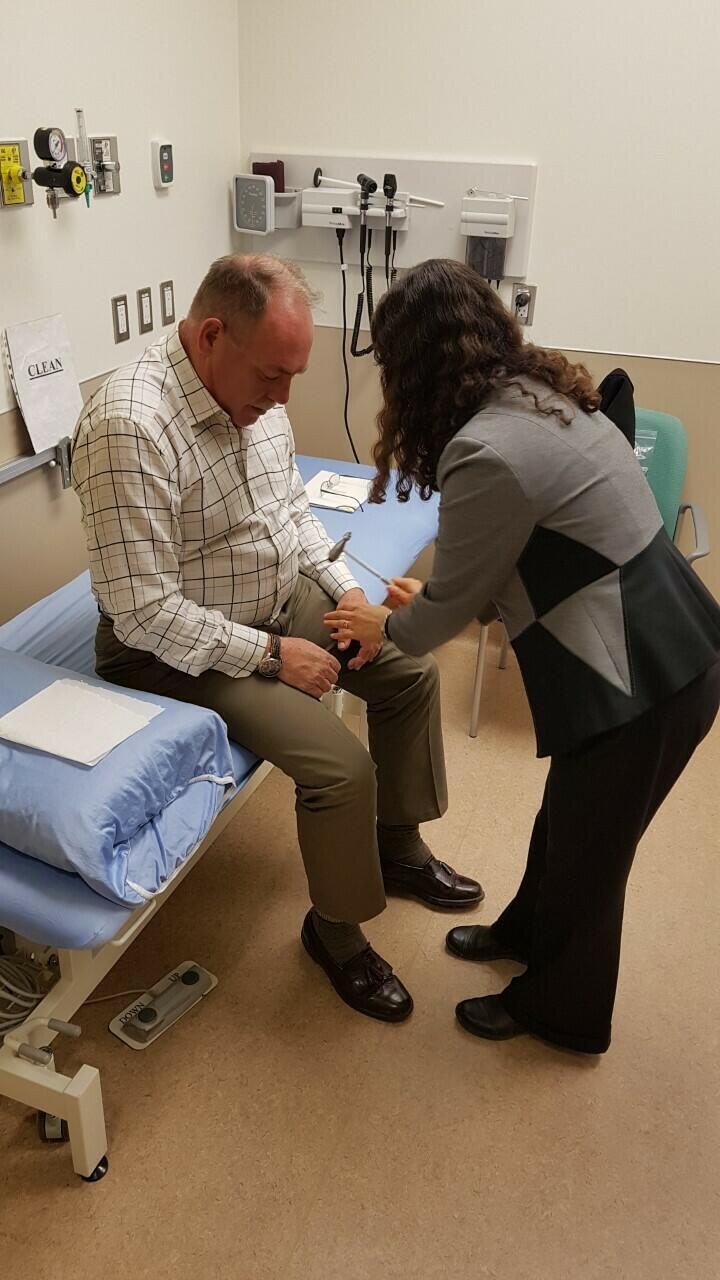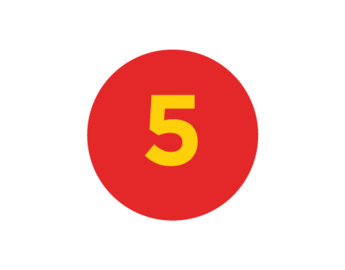
University of Calgary Headache Fellowship Program
Program overview
The Calgary Headache Assessment and Management Program (CHAMP) stands as one of Canada’s largest tertiary headache centres. Founded in 2003 by Dr. Werner J Becker, a trailblazer in the field of headache neurology in Canada, CHAMP is a multidisciplinary program consisting of four headache neurologists, a nurse practitioner, a registered nurse, and a licenced practical nurse at its core clinic. Collaborating seamlessly with other subspecialties including neuropsychiatrists, physiatrists, pain specialists, anesthesiologists, and allied health professionals such as physical therapists, occupational therapists, pharmacists, psychologists, and social workers, CHAMP is committed to deliver comprehensive multi- and interdisciplinary care for patients suffering from headache disorders. In addition, the program forms an extensive network with community neurologists, community headache specialists, and a group of general practitioners with expertise in management of migraine. This network not only enhances patients’ care in headache management, but also streamlines referral processes, reduces wait times, and importantly broadens clinical experience and procedural skills for headache trainees.
The CHAMP fellowship program offers advanced training in the field of headache disorders and facial pain. This encompasses intensive outpatient clinic-based learning, inpatient consultations for challenging-to-treat headache disorders, several educational activities, and research. The program provides an enriched environment that fosters both headache education and research, laying the foundation for a career in academic headache neurology. Upon completion of the fellowship, trainees emerge as competent professionals capable of providing extensive inpatient and outpatient management in the realm of headache disorders and craniofacial pain syndromes. The certificate of training is conferred upon successful completion of at least one year of training.

Broad Objectives
Upon completion of fellowship training, each trainee will be able to:
- Demonstrate the ability to conduct comprehensive assessment and management of patients with complex headache disorders and craniofacial pain across inpatient and outpatient settings.
- Demonstrate excellent communication skills including empathy, patient-centred questioning and active listening, use of lay terminology, checking for patient understanding, and motivational interviewing.
- Safely and appropriately conduct standard procedures in treating headache patients including Onabotulinumtoxin A injection, peri-cranial nerve blocks and trigger point injections.
- Effectively collaborate within a multidisciplinary team, ensuring timely, patient-centred management of patients with headache disorders.
- Design and execute an academic research project in headache medicine.

South Health Campus

University of Calgary Foothills Campus
Clinical Training
- Trainee(s) will actively participate in outpatient headache clinics 3 days per week.
- The clinics are an integral component of Alberta Health Services programs and community-based services which encompass:
- The CHAMP outpatient clinic (Drs. Lara Cooke, Jeptha Davenport, Farnaz Amoozegar and Prin Chitsantikul)
- The Pediatric Headache Clinic at the Alberta Children’s Hospital (Dr. Serena Orr)
- The Calgary Brain Injury Clinic at the Foothills Medical Centre (Dr. Chantel Debert)
- The Headache clinic, the Calgary Chronic Pain Centre at the Richmond Road Diagnostic and Treatment Centre (Dr. Chantel Debert)
- Community neurology and headache clinics (Drs. Deon Louw, and Olga Lekontseva)
- Trainees' primary focus will be at the CHAMP clinic at South Health Campus. Supplemental clinics have been incorporated to offer additional experiences in specific areas, including headache disorders in traumatic brain injury, pediatric headache disorders, community-based management of headache disorders, and the enhancement of procedural skills.
- Trainees will collaborate with outpatient multidisciplinary team members including neuropsychiatrists, physiatrists, psychologists, pharmacists, physical therapists, occupational therapists, and social workers.
- Trainees will engage in inpatient management of difficult-to-treat headache cases. The on-call schedule for inpatient consultations will be structured based on the number of trainees each year.
- Trainees will acquire hands-on experience in headache-related procedures such as Onabotulinumtoxin A injections, peri-cranial nerve blocks, and trigger point injections. This exposure will be facilitated through Alberta Health Services (AHS) outpatient clinics, community headache clinics, as well as sponsored independent training courses.
- As part of responsibilities, trainees are mandated to complete all patients' orders on the same clinic day. Additionally, trainees must complete medical records within 24 hours, guaranteeing the timely documentation of patient information and care details.
- Trainees are responsible for updating the CHAMP headache registry after each clinic session. This includes entering relevant data and information into the registry to maintain an accurate and up-to-date record of patients seen at CHAMP.
- Trainees may participate in triaging incoming referrals for CHAMP. This involves the assessment and prioritization of incoming patient referrals based on urgency and clinical need. By engaging in the triage process, trainees learn about triaging referrals for their future practice and play a valuable role in ensuring that patients are appropriately scheduled and seen in a timely manner.
- During the training period, each trainee is entitled to a 4-week vacation per academic year as well as up to 2 weeks of headache conference attendance.
- Optional out-of-province or out-of-country electives in headache medicine are available, for a maximum of 4 weeks within an academic year.

Foothills Campus
Education
- Educational sessions, including CHAMP rounds, journal clubs, complex case rounds, and invited guest speakers, are scheduled 2 times per month on the first and third Thursday.
- Active participation in these education sessions is mandatory for trainees, who will be required to present and/or participate in discussion during these sessions.
- The Department of Clinical Neurosciences (DCNS) at the University of Calgary conducts the department’s Grand Rounds every Friday. Each trainee will be responsible for presenting during the Grand Rounds at least once per academic year.
- Trainees have the opportunity to partake in national and/or international headache conferences/meetings and symposia, contributing to their learning, and exposure and engagement with the broader headache medicine community.
- Trainees are encouraged to attend one headache conference annually. Trainees may have the opportunity to attend an additional conference if they are presenting their research at the conference. Reimbursement for conference expenses is contingent upon the source of the trainees' funding. Fellows funded by the Canadian Headache Society (CHS) may be eligible for reimbursement through the CHS if the trainees are presenting at the conference.
- Trainees will have the opportunity to actively engage in the neurology residency program at the University of Calgary. This involvement may include supervising residents in headache clinics, participating in the teaching of headache topics at residency academic half days, and contributing or being an examiner in the headache station of neurology residency OSCEs. Additionally, trainees may play a role in teaching at the National Neurology Resident’s Headache Course (NNRHC) organized by the CHS.
- Trainees will be expected to deliver patient-facing education sessions and workshops
Research
- In addition to clinical and educational responsibilities, trainees are allocated two days per week dedicated to a research project throughout the duration of the training.
- Trainees will be actively engaged in interacting with research study participants, gaining exposure to a diverse range of ongoing research studies conducted at CHAMP.
- A research project is a mandatory component of the headache fellowship. Each trainee will select a research project in consultation with fellowship preceptors, although there is an option to participate in ongoing research projects within the headache program.
- Each trainee is strongly encouraged to complete and submit their research project for publication in a peer-reviewed journal.
- Recognizing the importance of advancing career interests in headache research, the fellow may opt to extend the fellowship for up to another 12 months to further pursue their research interests. However, such an extension is subject to the approval of the program and contingent upon the source of fellowship funding.
Evaluation
- A probationary evaluation to assess each trainee's progress is scheduled at the 3-month mark following the commencement of the fellowship training.
- Subsequent evaluations will occur every 3 months throughout the duration of the fellowship training, ensuring ongoing monitoring and feedback.
Administration
- In addition to clinical and research experiences, trainees will actively participate in the CHAMP team meetings, held once a month. This additional involvement provides valuable administrative experience during the training period.

Eligibility Requirements
Application Requirements
- A letter of intent
- A current Curriculum Vitae
- Three letters of reference
- For international applicants, an ELP test result (please refer to the eligibility requirement #3 above and the application process for international fellows)
- A copy of medical degree (with English translation if applicable)
- A copy of specialty certificate if applicable (with English translation)
- A proof of citizenship (copy of passport)
- An Interview (which can be conducted virtually) if the initial application review determines eligibility.
Application Process
- To initiate the application process, contact the CHAMP fellowship program director, Prin.Chitsantikul@ahs.ca. This is the first step to determine if there is availability for fellowship and the timeline.
- Fellowships are competitive and are assessed by review of all application components. One to two fellows per year will be selected following the interview.
For more information regarding the application process for fellowship training at the University of Calgary, please refer to:
https://cumming.ucalgary.ca/pgme/international/fellowships/application-procedures
Application deadlines
- Canadian Medical Graduates applying for a CHS fellowship - as per Canadian Headache Society fellowship application deadline, which is typically by the Spring of the year prior to the start of fellowship (i.e. about 15 months in advance).
- International Medical Graduates (IMGs) – Please note that the specific deadline for IMGs may vary based on their intended starting date but would typically be at least one year in advance of fellowship commencement. Please contact the program for more information.








